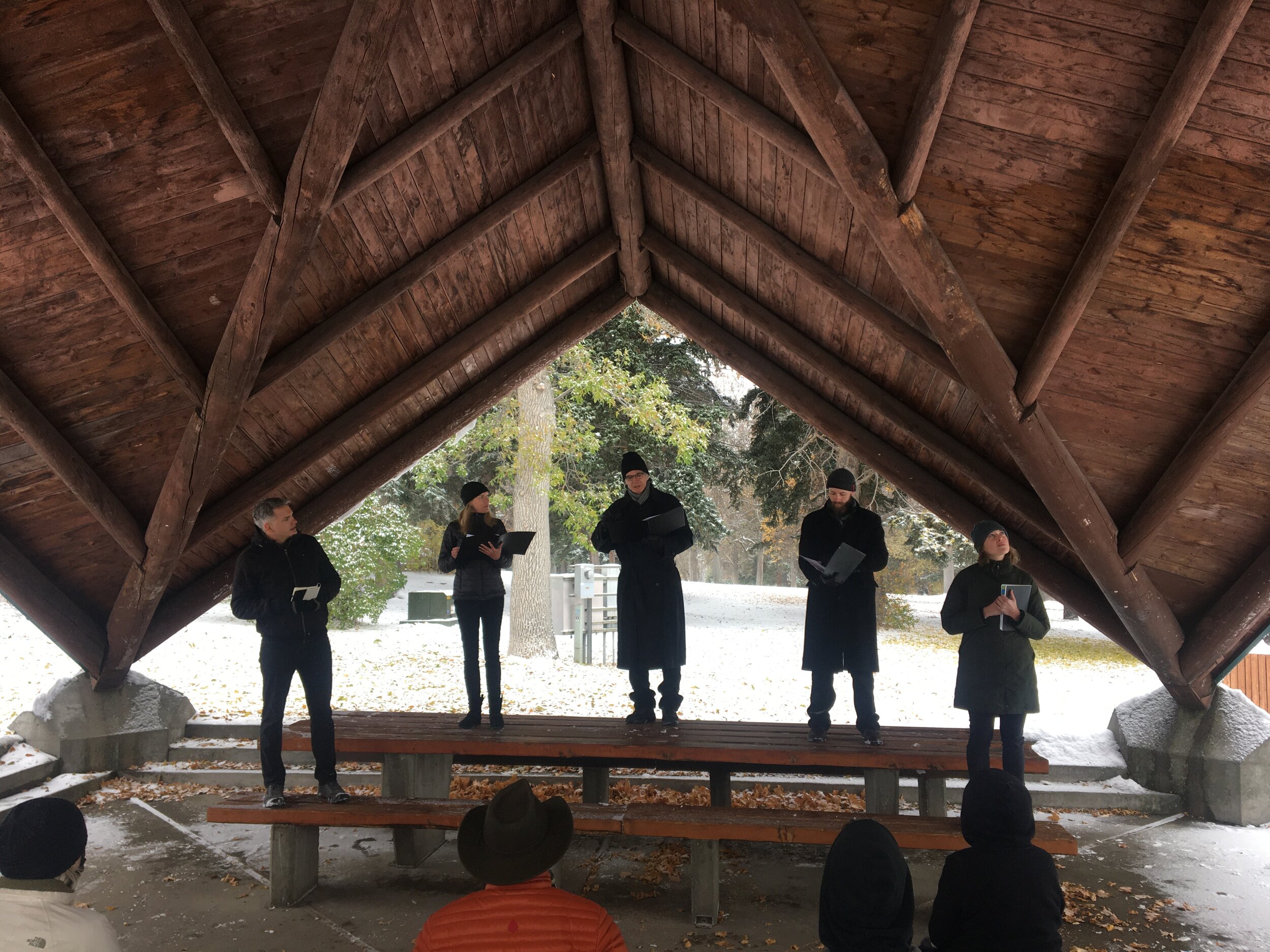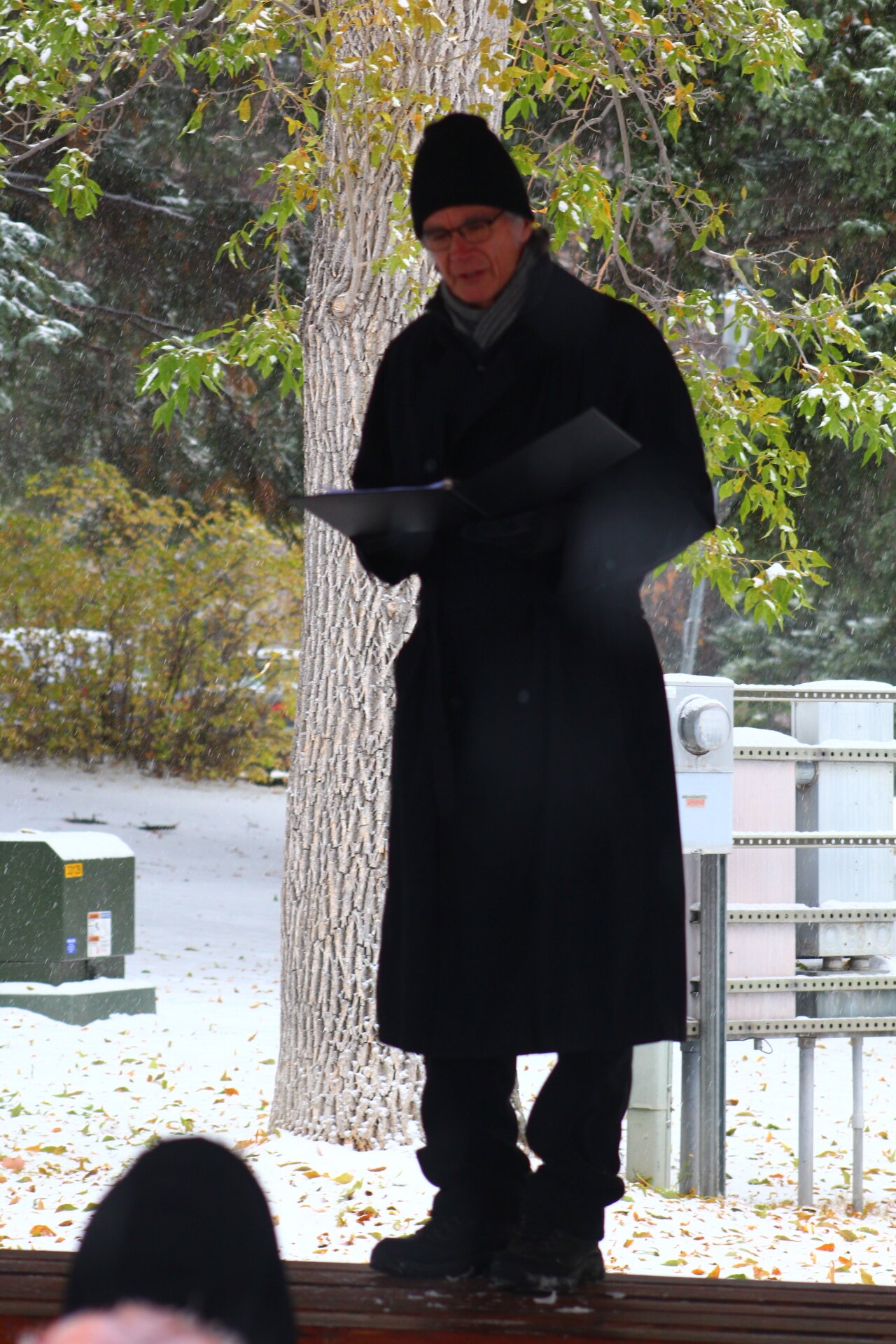
Current Production: The Waste Land
The Waste Land and Modernist Times
On Saturday and Sunday of October 17 and 18, we present a dramatic reading of two famous poems written by one of the world’s most famous poets, T.S. Eliot. Readers are John Hosking, Kirsten Daniels, Keegan Grady, Kate McGunagle, Ben Leubner and a cello duet performed by Ilse-Mari Lee and David Kirk.










The performance of The Waste Land went on brilliantly, despite the snow and chilly temperatures both days. Yet, the shows were well attended, testifying to the town’s desire to see and experience live theatre.

Keegan Grady

John Hosking

Ben Leubner

Kirsten Daniels

Ilse-Mari Lee

Kate McGunagle
The Waste Land Performance
Saturday October 17 and Sunday October 18, 2:00 pm
Reading of The Love Song of J. Alfred Prufrock
Cello performance of Gordonkara, composed and performed by Ilse-Mari Lee
Dramatic reading of The Waste Land
Location: Lindley Park pavilion, Bozeman
Audience will be limited to 50 people for each performance. Masks and social distancing will be required for this one hour performance. The program is free, but donations will be gladly accepted, with all proceeds going to the performers. Please register for your attendance at this production ahead of time by following this link.
The Waste Land is full of different voices that express love, loss, despair, humor, and even hope. After the style of Homer and the ancient tradition of poets giving dramatic readings of their work, this production encourages you to enjoy the beauty of Eliot’s language.
The Poems
The Waste Land is a modernist poem, written by T.S. Eliot in 1922. The poem is a sweeping look at the wreckage of modern civilization, and its stanzas echo with the voices of the past and the present. Eliot mixed together classical mythology, Dante, Shakespeare, Wagner, The Upanishads, 19th-century French poetry, contemporary music, and much more in this attempt to understand how the fragments of the past could be used to prevent the ruin of the present.
Prufrock is Eliot’s first major published work, a work that is a study of an eloquent, but neurotic, prototype modern man.
The Music
Gordonkara was composed in 2006 in memory of Gordon Epperson (1921-2006), a renowned concert cellist and author who taught generations of cellists at the University of Arizona, where Ilse-Mari studied with him. The work is intended to capture the full range of the cello, as well as the sorrow of the loss of a great mentor. Dr. Epperson was published widely on aesthetics, including such influential books as The Musical Symbol: A Study of the Philosophic Theory of Music and The Mind of Edmund Gurney. “Gordonkara” is the Hungarian word for cello.